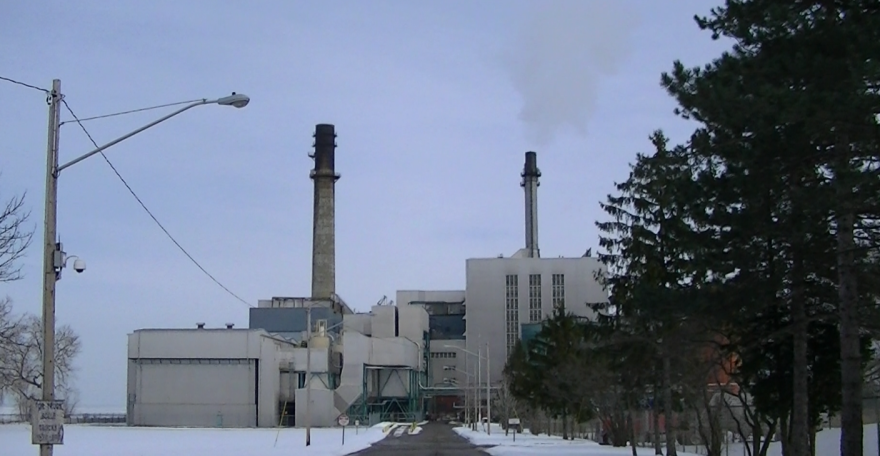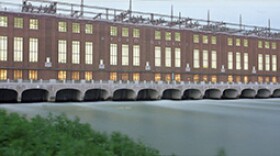To read the NRG report, click here
Original article
A report commissioned by NRG energy on the economic benefits of converting its Dunkirk power plant to natural gas has drawn criticism from the Sierra Club and skepticism from experts.
The report claims thousands of jobs would be created, and ratepayers would save millions of dollars if the currently coal-fired operation was repowered.
However, Kim Teplitzky, spokesperson for environmental advocacy group the Sierra Club, says NRG’s study should have also scoped the possibility of re-powering with cleaner alternatives, like wind.
“I think this study was a real failure on NRG’s part. Basically they only looked at one alternative of what to do with this plant and this site, and didn’t look into anything else, including efficiency and renewables,” Teplitzky says.
“How can you say that something is the best when you have only looked at one thing, you have no basis for comparison. It’s a false claim, I believe, and I think that really what we need is for these companies in the state to be investigating the alternatives including efficiency and renewables.”
The report for NRG carried out by a consulting group, says the efficiency of a combined-cycle plant and the low costs of natural gas would save ratepayers more than $3 billion over ten years.
Teplitzky says natural gas isn’t what Western New York needs. She argues investing in renewable energy would provide more jobs and more efficiency with less environmental damage.
“That same scenario, and that same thing will happen if you’re investing in renewable energy, with the added bonus that you’re going to have more stable electricity prices and you’re going to be reducing dangerous pollution.”
“Renewable power like wind has the potential to create thousands of new jobs. So you look at things like construction of wind turbines and farms, operation and maintenance, but also there’s a tremendous opportunity in manufacturing. If New York really ramps up its renewable energy production, particularly in wind power, you’re going to be looking at the opportunity to bring new manufacturing to the region and that is going to be a huge economic boost.”
Economic forecasts draw doubt
Expert in energy policy, professor Stephen Bird from Clarkson University, also questions aspects of the report.
“I’m always a little skeptical about economic assessments that look far into the future, and I try to think through a lot about what the potential assumptions they’re using are,” Bird says.
He says the report seems to assume the market will remain static, and the price of natural gas will remain at such low levels. But this is rarely the case he says.
“Often times in these sorts of reports we worry about assuming that the market is going to do X, or, Y, or Z. In fact, often times the markets do extraordinarily surprising things that people didn’t expect at all.”
Bird says he becomes wary when a commissioned report generates such large numbers.
“I’ve seen a lot of what we call “dueling economic assessments”. I’ll see literally one report from a set of economists that are a consulting firm that say, ‘X, Y, or Z is going to provide hundreds of jobs and millions of dollars’, and another report from another team essentially using the exact same data that says, ‘doing X, Y, or Z is going to be the biggest disaster we’ve ever seen.”
But, Bird is confident the Public Service Commission will closely examine the NRG report with an eye on what decision will provide the best value for New York state ratepayers.
“Their job is to look at the submitted materials with a good degree of healthy skepticism. So they’ll presumably look at NRG’s report with a good deal of skepticism, and they may look at National Grid’s recommendations with a good deal for skepticism, and attempt to make the best decision for the ratepayers.”
UPDATE: NRG spokesman Dave Gaier responded to criticism of the company's study with the following statement.
NRG is not only a strong supporter of renewables, we’re the largest solar developer in the country. However, this study looked at the economic impacts of repowering the existing Dunkirk station as a conventional power plant to meet a defined reliability need identified by National Grid and the New York Public Service Commission. The Sierra Club representative mentioned the need for energy efficiency. We agree; that’s why we’re proposing to build the most efficient conventional power plant in New York State. This plant will also preserve jobs, preserve the local tax base and provide significant economic benefits locally, regionally and across the state. New York needs a diversified generation portfolio. Both renewables and natural gas should be in the mix. In fact, the repowered Dunkirk plant would actually help bring more renewable energy onto the grid, because it can ramp up quickly to provide power when the sun isn’t shining and the wind isn’t blowing. That’s essential for ensuring reliable power and a stable electrical grid. The Dunkirk Economic Impact Study, conducted by a well-respected independent research organization, shows specific and quantified ratepayer benefits from repowering Dunkirk versus retiring it. In this case, the project studied meets a reliability need in the area that just can’t be met from intermittent resources alone. We think that a Dunkirk plant repowered with clean natural gas, keeping jobs in New York, is a better option than doing nothing. Finally, we also agree that there’s a tremendous opportunity for the state in manufacturing. Of course, manufacturing relies on having a dependable supply of electricity available at reasonable prices. What we’re proposing at Dunkirk helps ensure that, while it helps preserve jobs and the tax base of an entire community in the bargain. We think the economic boost of this project, as detailed in the study just released, is both obvious and significant.







